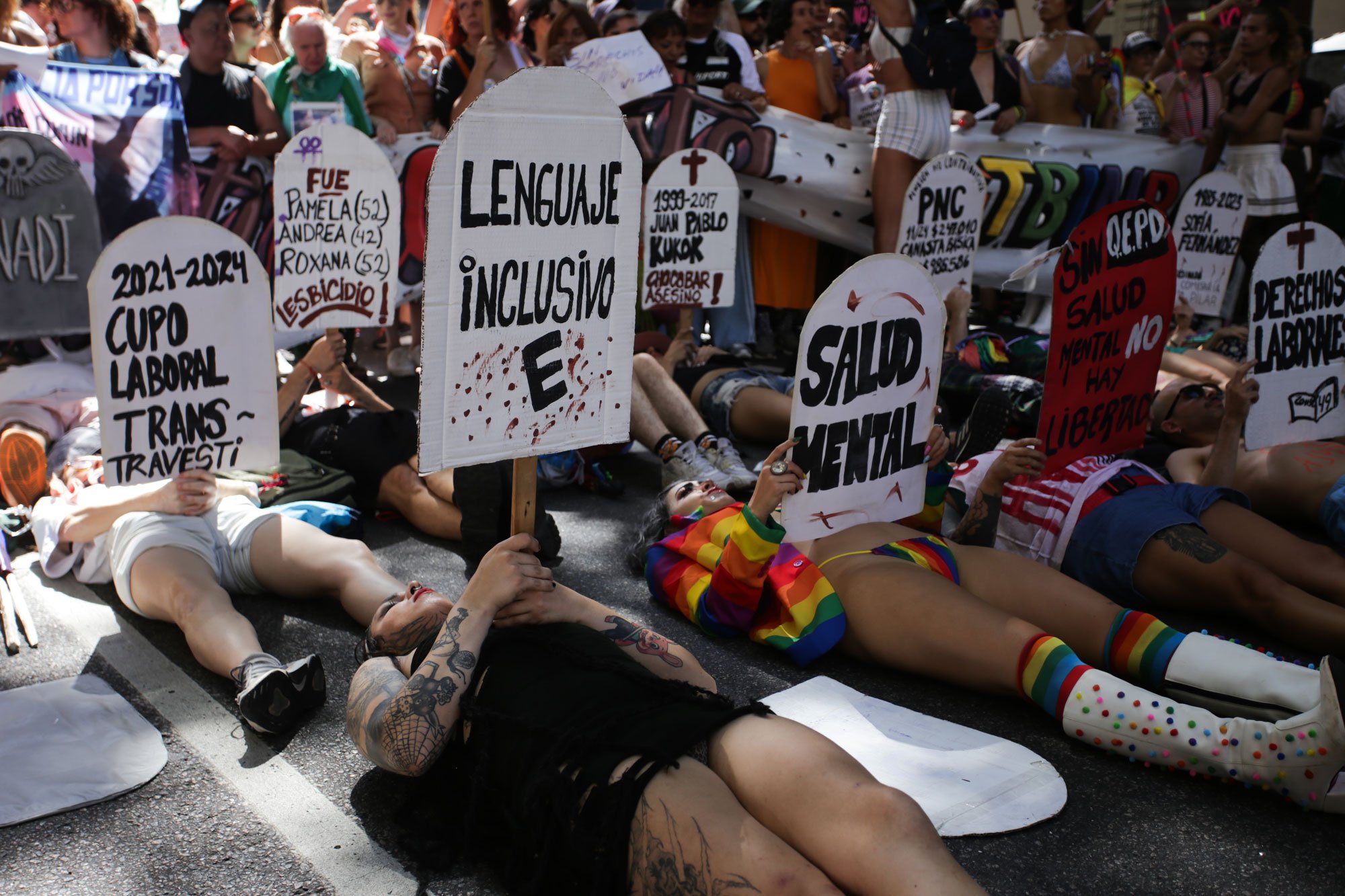by CECI GARCIA & SUSI MARESCA

A massive march took the streets Saturday in the city of Buenos Aires for the Federal Anti-Fascist and Anti-Racist LGBTQIA+ Pride March. The protest is part of a rising tide that began in Buenos Aires and echoed throughout Argentina and beyond.
The action downtown Buenos Aires got going around 4 o’clock. It was over 30 degrees outside, but the atmosphere was energetic, protest organizers said millions attended throughout the country. Entire families pulled out their hand-painted signs and hugged each other on street corners. People came together without fear: artists wheatpasting posters, others arriving covered in glitter, or wearing green handkerchiefs, spreading a sense of collective performativity through the heart of the city.
There have been two key protests that have mobilized across social sectors since Javier Milei took office a year and two months ago.* The first was the March in Defense of Public University, which took place in October, and the second was on Saturday.
Organizing against Milei’s hate
The massive march last weekend was diverse and intersectional. It was led by members of a collective of travesti-trans and non-binary people, mothers and grandmothers of the disappeared, Black-anti-racist activists, racialized and Indigenous peoples, migrants, differently abled folks, elders and children. Behind them came the Antifascist Assembly, followed by trade union organizations, with members of political parties bringing up the rear.
The spark of resistance turned into fire after a speech given by Javier Milei at the World Economic Forum in Davos, Switzerland, on January 23. Milei linked homosexuality with child abuse, argued that feminism distorts equality, and called “wokeism” an epidemic that must be excised like a cancer. His comments had the effect of fanning the fire.
Ojala for more
